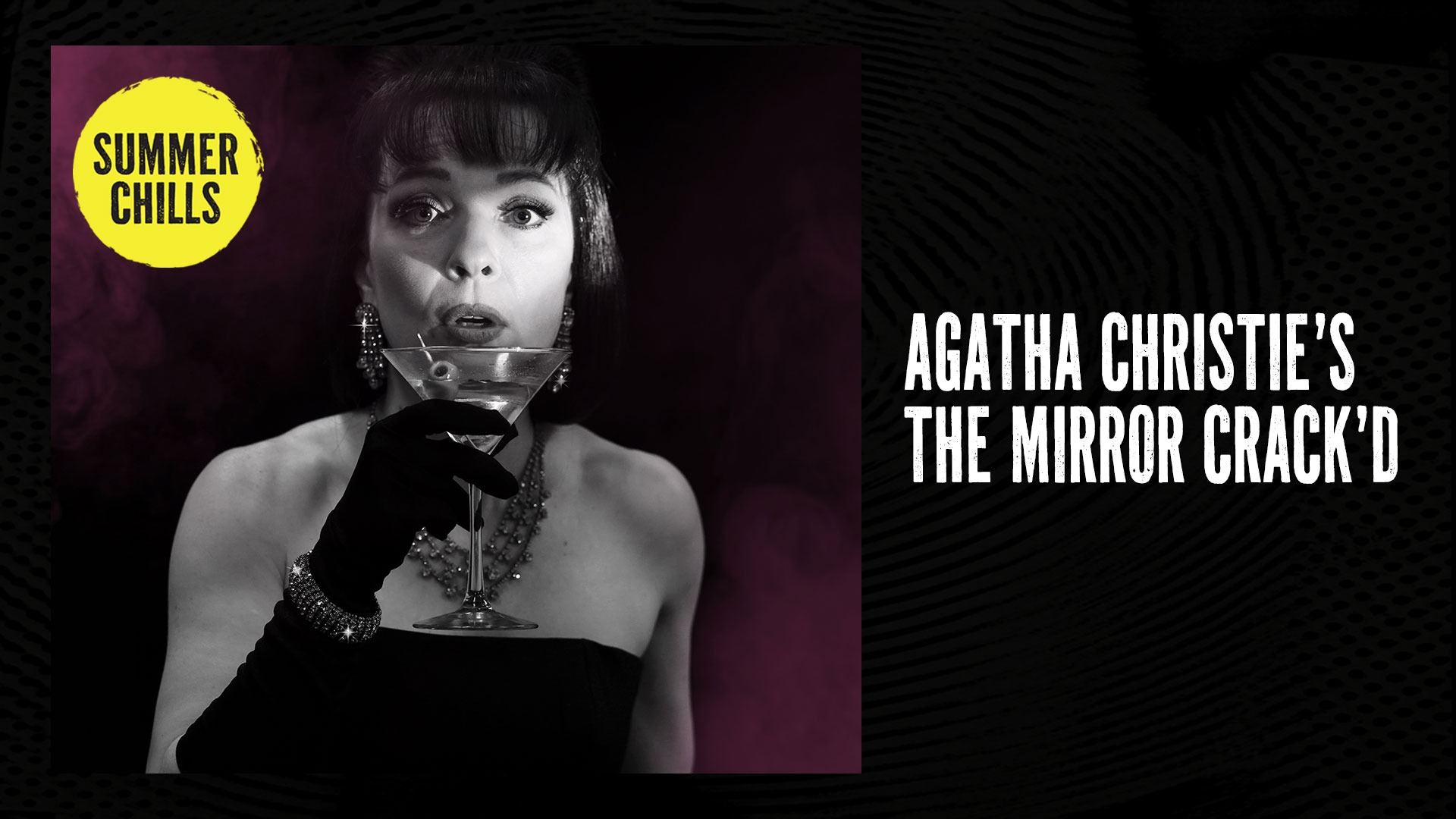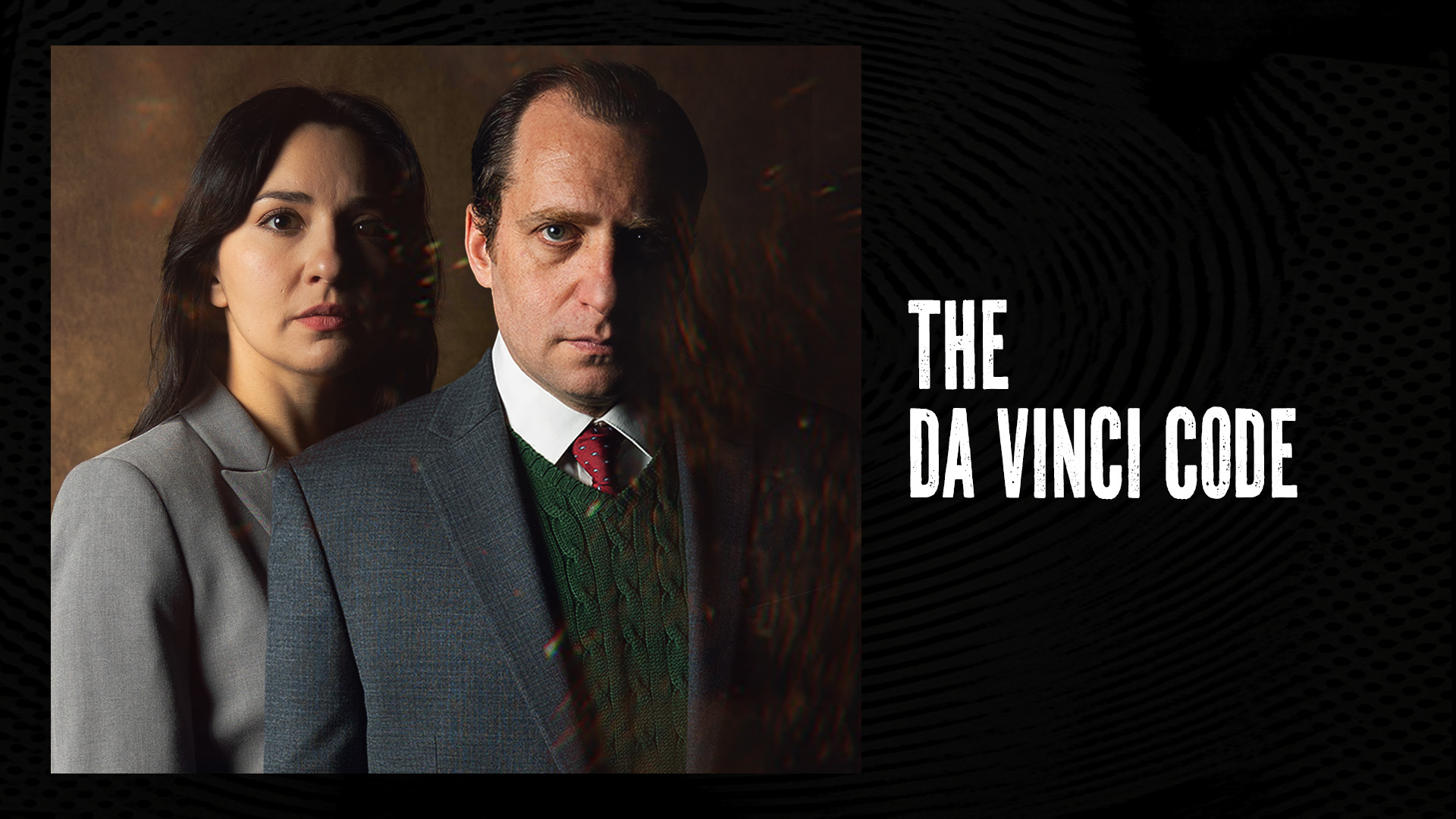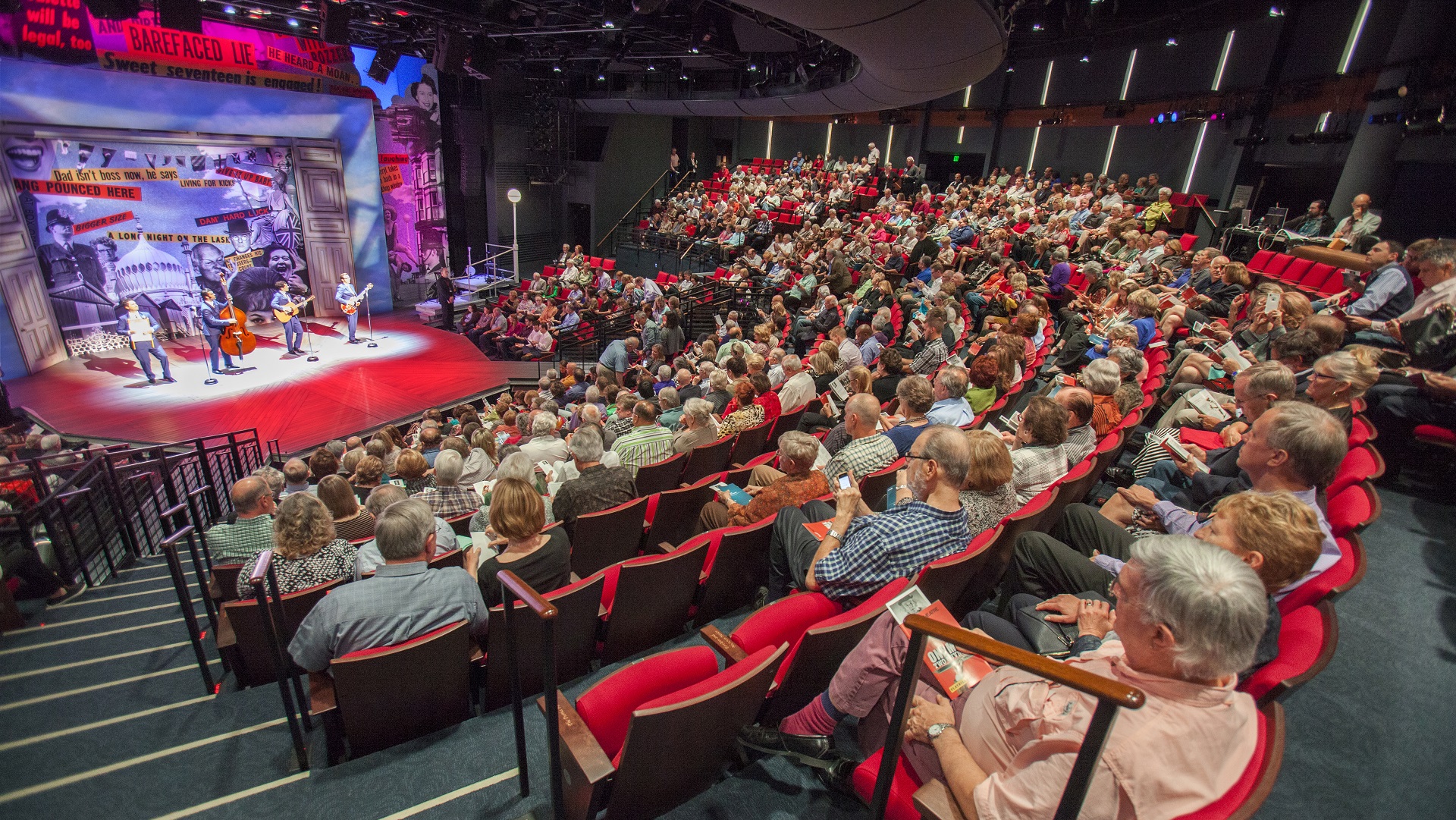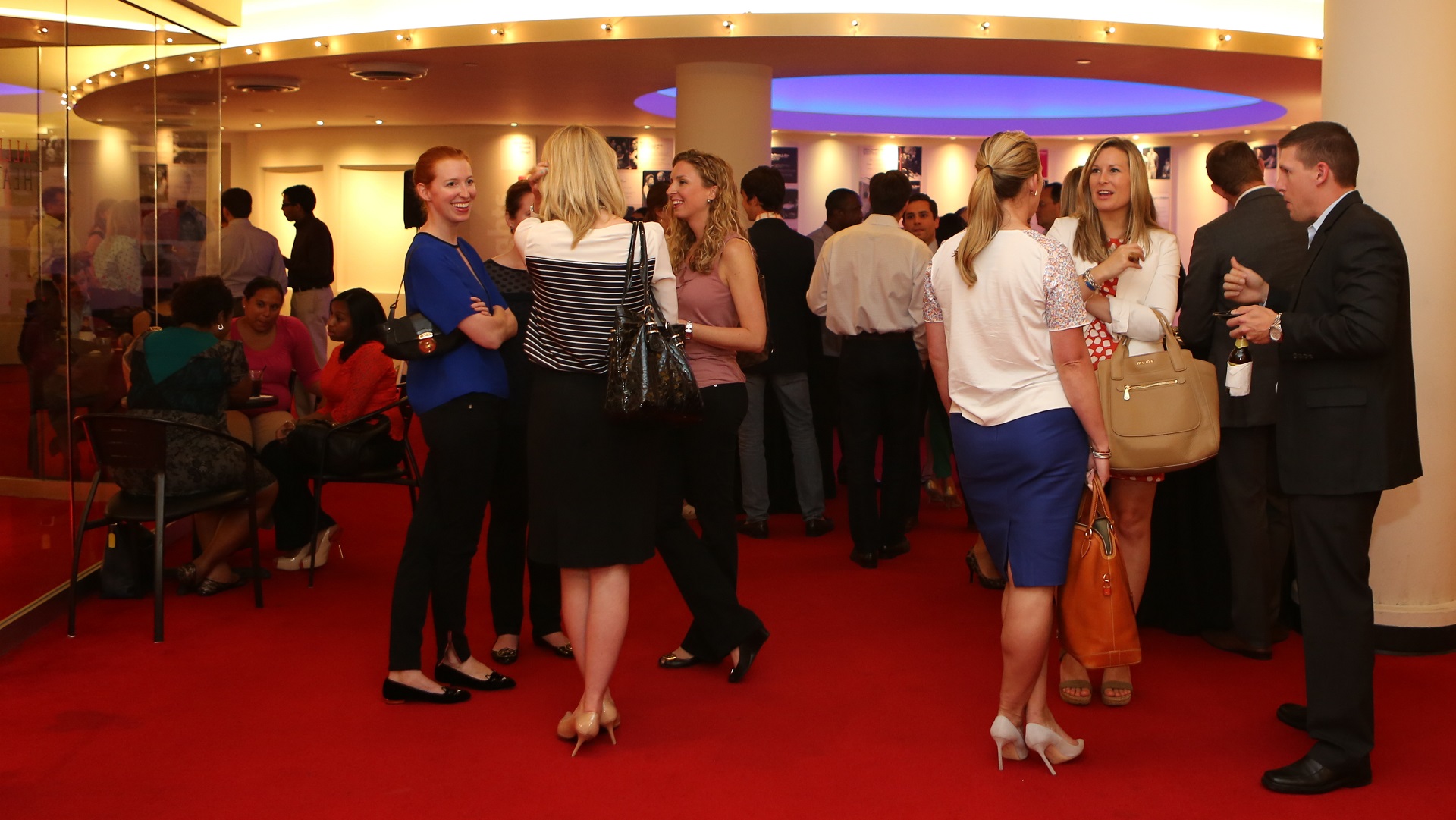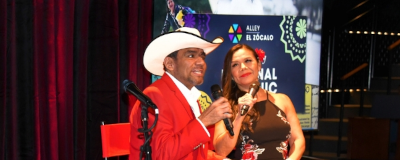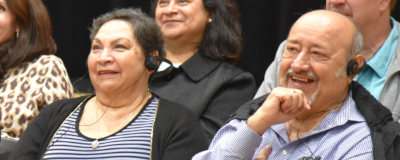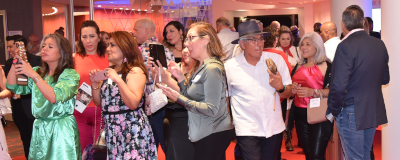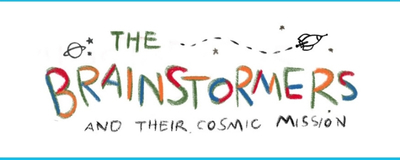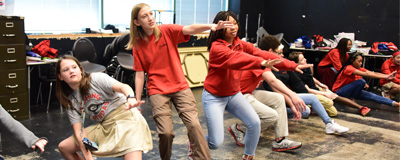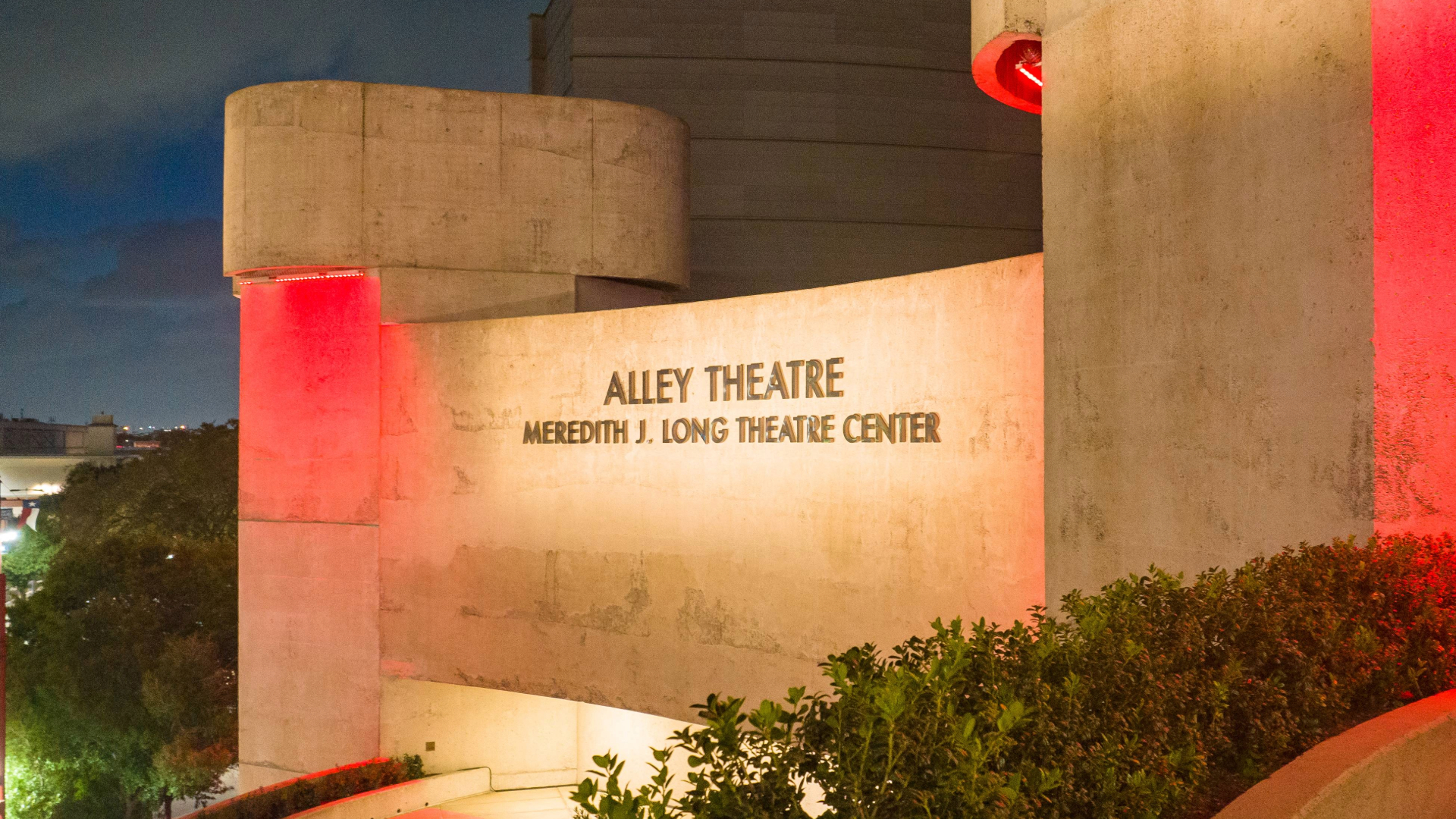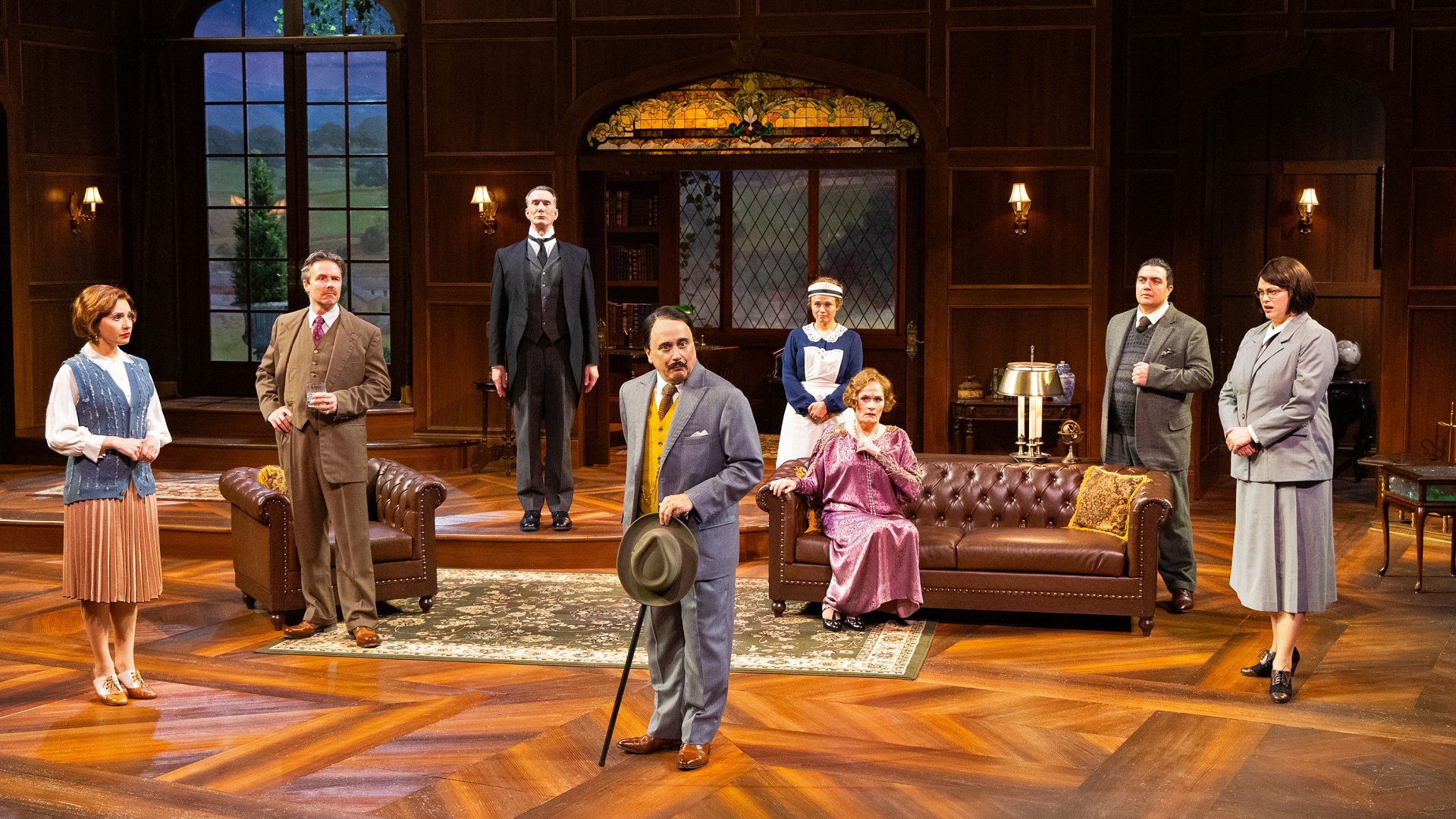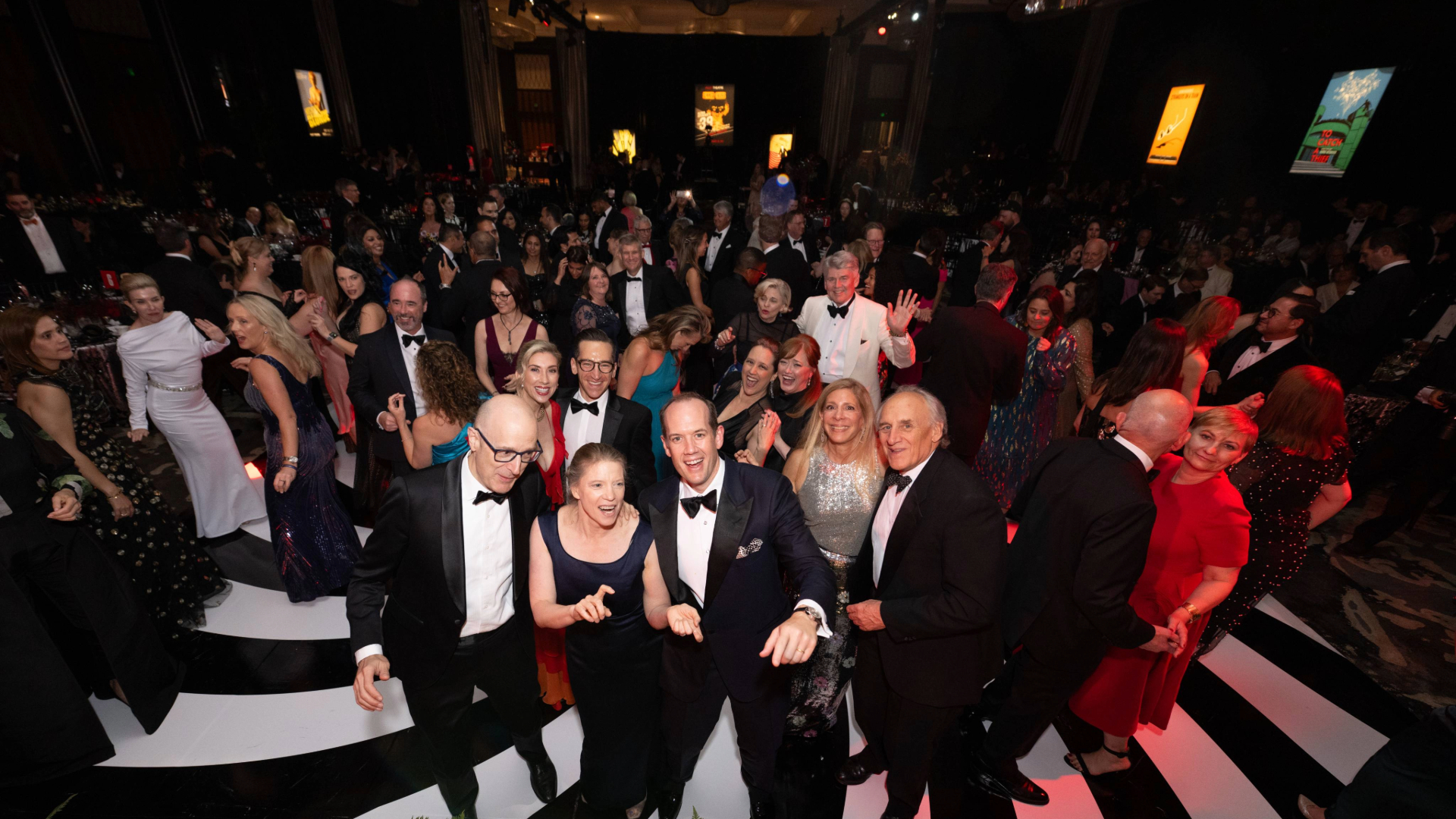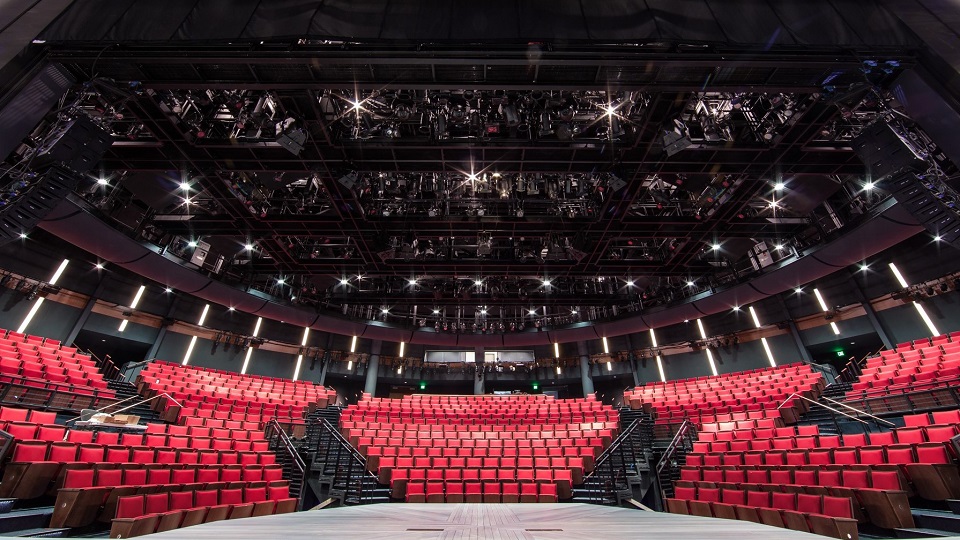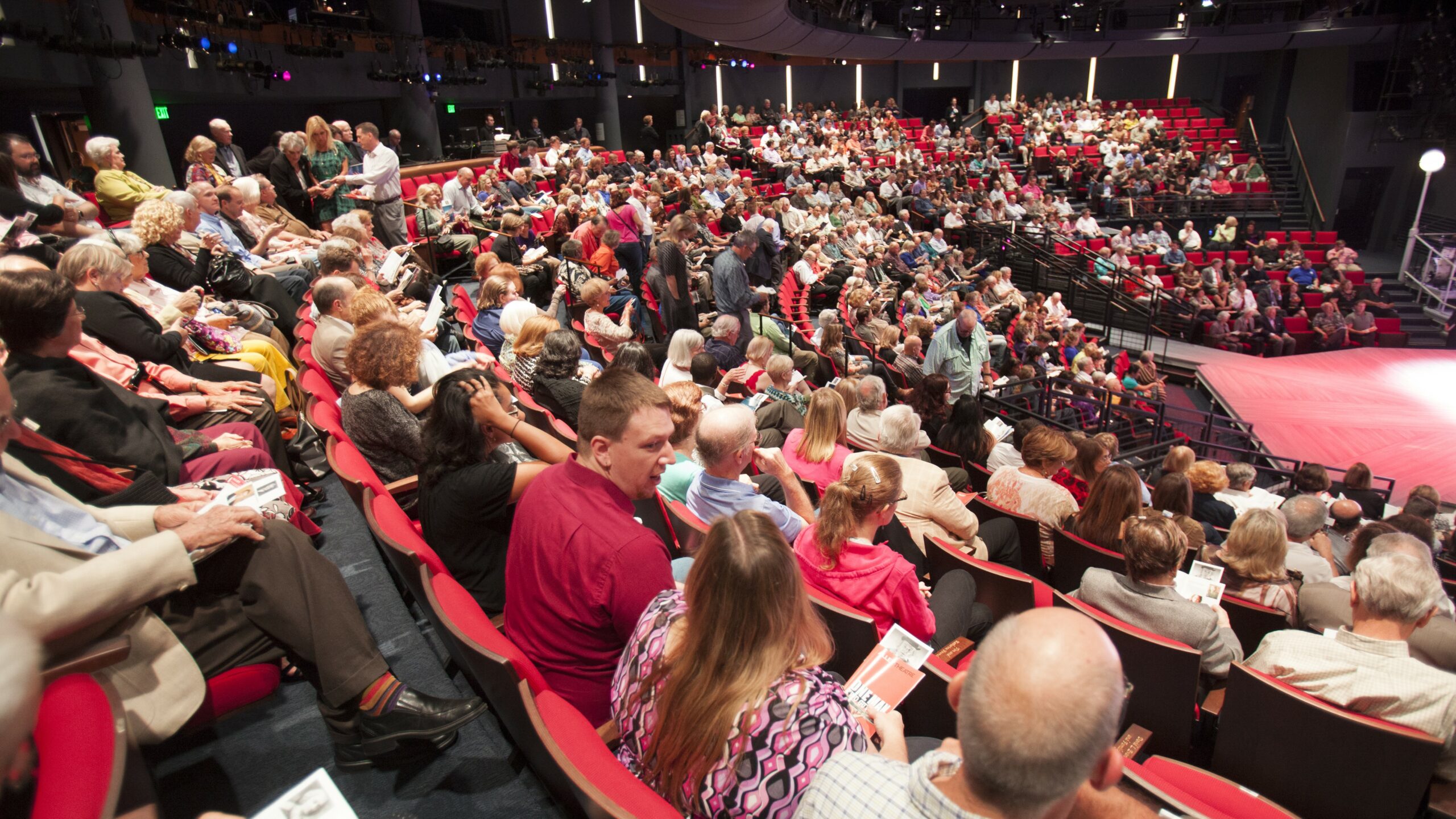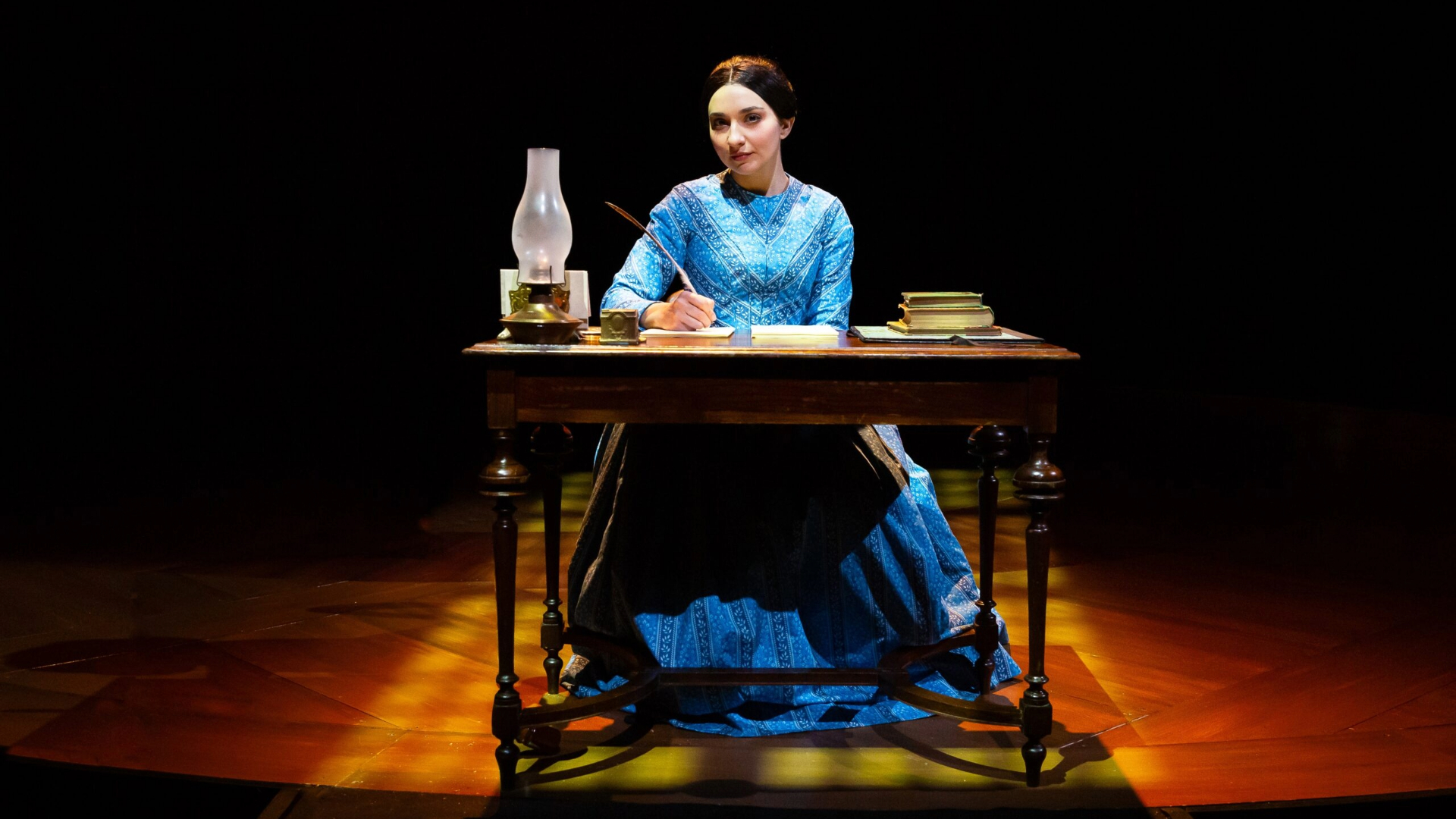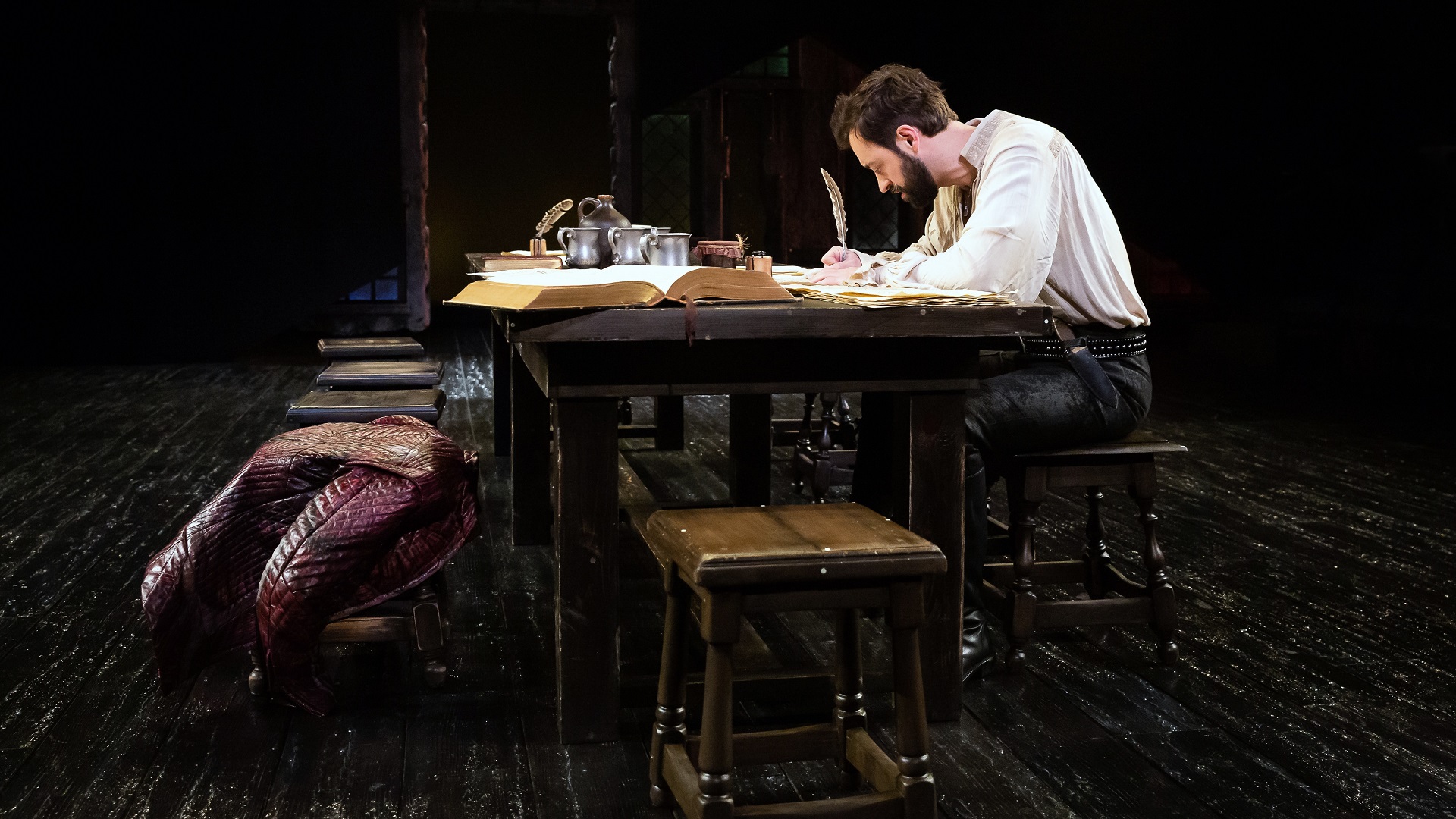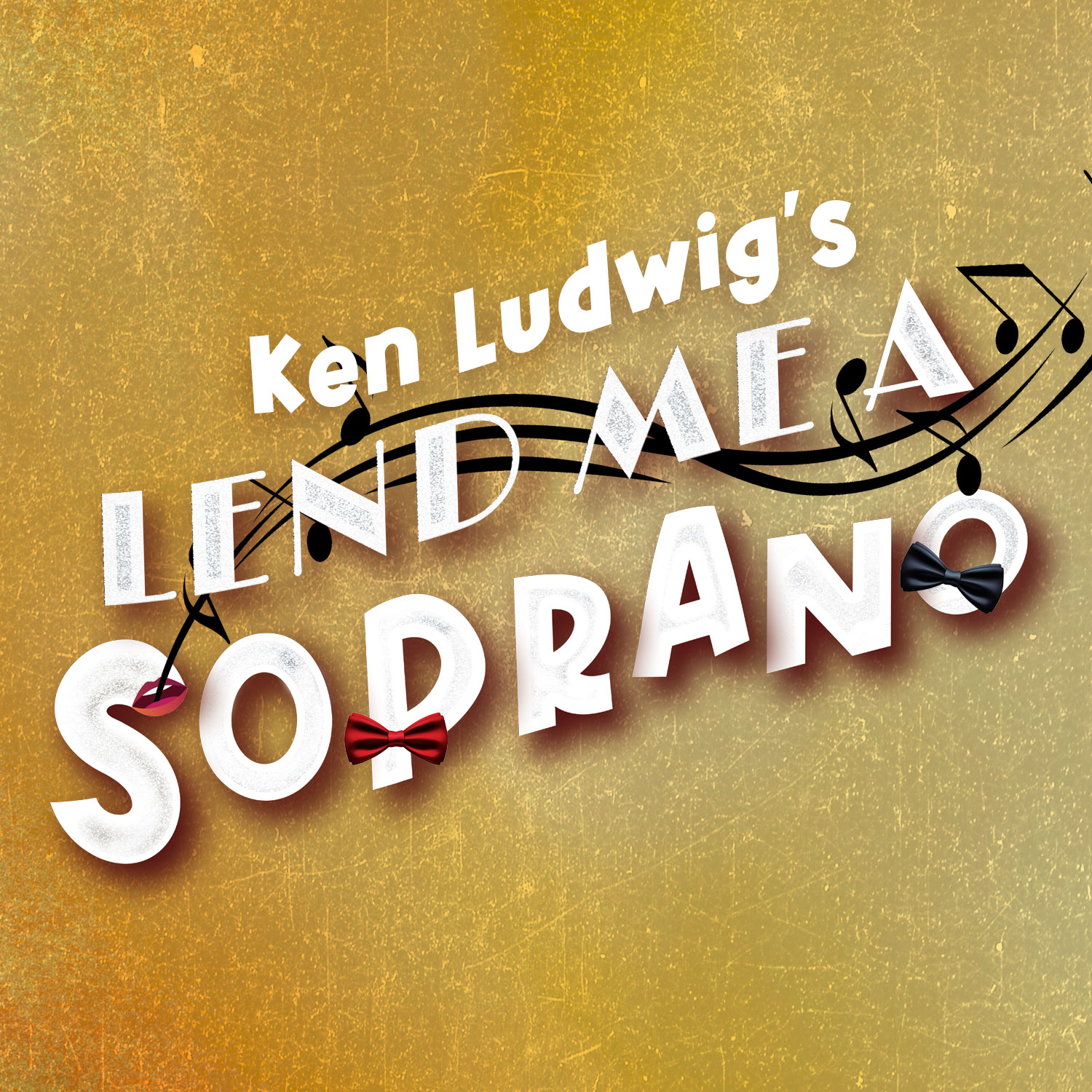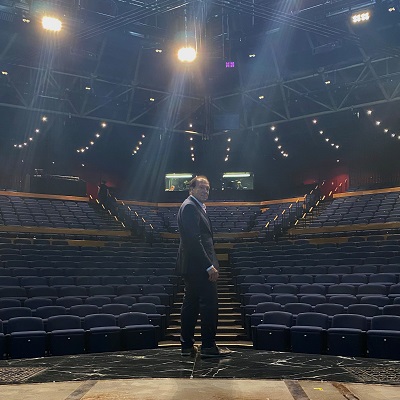
Ken Ludwig on stage at the Chichester Festival Theatre
Several weeks before the start of our first rehearsal, Literary Manager Lily Wolff gave Ken a call to learn more about the origins of Lend Me A Soprano, the importance of comedy, and Ken’s idyllic porch writing routine.
Lily Wolff: Many of our audience members may be familiar with your original play, Lend Me A Tenor, which was a Tony Award-winning hit that played on Broadway and the West End. What was the spark that led you to write that original piece?
Ken Ludwig: When he was writing She Stoops to Conquer, Oliver Goldsmith, one of my idols, said “What’s the funniest play I can write?” I loved that. When I sat down to write Lend Me A Tenor, I was totally unknown. Later, people pointed out to me, “Ken, you told your own story.” I was like Max, in the original play. He’s the assistant to the General Manager of the Cleveland Grand Opera company. He thinks that there are things inside of him—in his case, the ability to sing opera—that other people can’t see. He wants to prove to the world that there’s more to him than meets the eye. We all harbor inner thoughts about things we believe we can do and that we want the world to see. Ultimately the story ended up being about me, but I didn’t realize it until years later. People said, “Well, of course it was about you, you idiot!”
Lily: That was not an answer that I was expecting to hear! I just love that, and, of course, it will translate so beautifully to the character Jo in Lend Me A Soprano. Are you a lover of the opera, Ken?
Ken: I am! Big opera fan.
Lily: What’s your favorite opera?
Ken: Well, I’m a big fan of the great comedies. I suppose my single favorite comedic opera is Don Pasquale by Donizetti.
Lily: So, what made you decide to write this new take on Lend Me A Tenor? How did that conversation with yourself unfold? What did you want to keep at the heart of the piece, and what did you want to shift?
Ken: Well, a lot of my work over the years has been recognizing that the Western canon of drama is so male-centric. Going back to the Greeks, the great theatre roles have been men, men, men. but just because it’s been that way in the past, doesn’t mean we can’t – and shouldn’t – work to redress that balance. I did an adaptation of The Three Musketeers for the Bristol Old Vic maybe fifteen years ago, and I gave D’Artagnan a sister named Sabine. She didn’t exist, of course, in the Dumas. But, she’s the one who kills Milady in the end! So I thought, “Hmm…what have I written myself that might be subject to that sort of treatment?” And then I thought: Lend Me A Tenor. The three lead roles are men: the opera company manager, the diva/tenor, and the factotum Jo – or Max in the original version. This is the 1930s, there were tons of strong businesswomen who ran artistic companies. Why shouldn’t her assistant be a young woman, and why not a soprano from Italy instead of a tenor?
Lily: Of course. We’re so proud to be able to premiere this piece. Especially as a theatre that was founded 75 years ago by Nina Vance, a brilliant artistic leader. And an amazing woman.
Ken: Yes! When I’ve been here in the past, I’ve spent time with Lynn Wyatt, too. She took me to one of the gala balls, and we became good friends. So why not write a play about her?
Lily: Was there anything in the larger narrative, or just the context or structure around the characters that you felt like needed to shift now that those three leads are women?
Ken: Yeah. The character who was the sexy soprano in the local company has now become a guy. And, sure, there’s lots of sexy tenors who pride themselves on being sexy. But, he also really loves being an opera singer! His dream is to get to the Met! So, I changed him. The bellhop, I decided to make a woman. So, yeah, changing the other characters around them has been equally a challenge.
It’s going to be fun working on it at the Alley. One of the reasons I’ve done so much work here is because I’ve always felt very at home. I’ve always felt that the art was really honored here. When I work here, it’s marvelous. Everyone says “What do you need to make this play better? We’ll find it, we’ll supply it, we’ll do it, because what’s important is the play.” There are not many other theatres that work so hard on that whole process.
Lily: Oh, thank you for saying that. That means a lot. You know, we love new plays at the Alley so much, and our audience loves them, too. They’ve become quite passionate, smart new playgoers. So, for those people in the audience, can you tell us a little bit about your writing process? Where do you write? When do you write? How do you write? Do you caffeinate? Do you ever sleep, Ken??
Ken: I sleep a little! I write every day. My best time is early in the morning; I get up hideously early every morning.
Lily: How early?!
Ken: Well, for a long time, it was 4 o’clock in the morning.
Lily: That’s the nighttime!
Ken: I sleep very little and I write every day. My best time is early in the morning. I used to get up hideously early every morning and write from 4:30 – 8:30 a.m. Once I had shows on Broadway, I was able to leave my day job, but I kept the habit of long hours. And so, I get up early and I usually write about 8 – 10 hours a day. I have special writing spaces that I go to that are not in my home. But I like having people around, so they can be social spaces because I like seeing people go by. When I work on my porch at home, people in the neighborhood go by, they wave to me. They know what I do. And I write by hand. Always. Always a pencil and a legal pad of paper. I use a legal pad, which is narrow ruled. I learned that from Neil Simon. He told me to do that because he said that you can get more on a page. And then, at some point, when you’re sort of outlining the play, you can get the whole sense of it on one page.
For probably the last four months or so, I guess that’s coming out of the pandemic, I’ve got six new shows going on in all different parts of the world, so I’m traveling constantly—which I love! Because I get to meet actors, and work with directors and the designers, and working on the shows… So, I have not been in that groove lately, but it’s the one I like best.
Lily: Our Literary intern, Karli [Fisher], was just gesticulating that she, too, writes by hand!
Karli Fisher: I was just going to say, I’ve been getting into playwrighting more recently and I can only write by hand! I find any time I go to a computer, I just lose every idea in my head.
Ken: Yeah, interesting! I tried at one point when that became, you know, the thing… also, one tends to get verbose because you can just type, type, type. You know, writing is rhythm. It’s an art. Seeing it on the page… I read all books in hard copy. Literature is a very personal thing that goes from the page into you, and you write that way too. I’m glad to hear that, you say that.
Karli: Oh, thanks! Oh, that was beautiful.
Lily: Ken, you’ve had 6 shows on Broadway, 7 in the West End, been produced in over 30 countries, published in more than 20 languages, won Tonys, Olivier Awards in the UK, achieved a multi-year Broadway run with Crazy For You in the 90s’. It’s hard to imagine a more objectively successful career in the theatre, which is arguably not the easiest industry to break into. What do you think it is about your work that speaks to so many people?
Ken: That’s very kind of you. In terms of a personal assessment, it’s this: do what you love in life. My father gave me advice early on that if you wake up in the morning and you don’t look forward to going to work, something’s wrong and you’d better go fix it. I was lucky enough to find that I loved the theatre from an early age. I love my work, so what else would I want to do but wake up and write?
Lily: It’s such great advice. I have a father who said the same thing to me. Thanks, Dad! But you also seem to really know what people want to come and see, what audiences are going to respond to, what will tempt people to get up off their couch. Especially after the pandemic, I’m in love with my couch.
Since we’ve done several of your adaptations at the Alley, I’m curious: are there common qualities you look for in source material? Or is it more of a gut impulse?
Ken: I believe deeply in instinct for writers. So, I think all the plays I’ve done, from the beginning, I’ve done on instinct. And I’ve done what moved me. I remember the very last time turning down somebody at Disney for another set of rewrites, and they were offering some outrageous amount of money. I said “No, I can’t spend more time on this project. I made the choice to write for the theatre, and I need to stick to it.” Being committed to what you believe in, you end up writing things that like-minded people want to see.
Lily: It moves me too, Ken! It moves me to hear you say that, because I know the kind of money that you’re talking about in the movie industry, and it’s just wild!
Ken: Silly money!
Lily: Yes, silly money! Speaking of silliness: you write comedies. You write a lot of brilliant comedies, and I wonder, why do you think we need comedies, as human beings? Particularly, comedies for the stage?
Ken: Well, you’ve really hit the nail on the head. You’ve asked the question that really is the sweet spot of what I do and what I care deeply about. I’ve been on a ten or twenty-year, you could call it a tear, to right the wrong of reviewers, and literary critics, who say, “Oh, tragedy and drama are more important than comedy.” And comedy, they sort of relegate to genre. And it’s not true. You know, there are two strands of drama: one is tragedy and melodrama, and the other is comedy, and they’re of equal importance, and I love the comedy strand better. For example, when my kids took Shakespeare in high school, what were they offered? They would always study nothing but the central tragedies of Shakespeare: Romeo and Juliet, Othello, King Lear, and Hamlet. And, I went to their teacher, and I said, well why in the world aren’t you also teaching Much Ado About Nothing? And Twelfth Night? And As You Like It? And Midsummer?! And they had no answer for me. It’s because the people who set the curriculum thought, “Oh, no, Hamlet is more important.” And it’s not! There’s a book I love by Northrop Frye called “A Natural Perspective: Development of Shakespearean Comedy and Romance.” He opens the book by saying there are two kinds of [people]: there are Odyssey people and Iliad people. Iliad people admire the Iliad more than they do the Odyssey. It’s the greatest tragedy ever written, and everybody dies. And then there are Odyssey people, who love the story of Odysseus more because he fights his way back to his homeland, to his wife and son, and however many trials he goes through, it ends happily. I’m an Odyssey person if you will. It has to do with having an innate optimism about life. Not a silly optimism, but a sense that if we link arms and band together, we can move the world forward in the right direction, even if it’s just a little bit at a time. And that’s why I write.
Lily: Ken, an audience member is likely going to be reading this interview right before the lights go down and your play begins. I’m curious if there’s anything that you would like to say them?
Ken: That’s a great question. I’ve never had that before. I guess what I’d say is: sit back, relax, and enjoy yourself! It’s a comedy. It’s meant to be two hours when you can just forget anything else that’s worrying you in life, and live through these people, and get involved and love them, and just enjoy yourself!
Lily: I love that. Thank you for that gift. Well, Ken, this has been such a pleasure. Thank you so much for taking the time. I feel like I got to start my day with such a “full cup” thanks to this conversation!
Ken: Thank you! Thank you. I loved it; this was great. I just loved it.
KEN LUDWIG’S LEND ME A SOPRANO
WORLD PREMIERE COMEDY
DIRECTED BY ELEANOR HOLDRIDGE
HUBBARD THEATRE
SEPTEMBER 16 – OCTOBER 9, 2022
Ken Ludwig, America’s preeminent comic playwright and author of recent Alley hits The Three Musketeers and Agatha Christie’s Murder on the Orient Express, debuts his latest play, Lend Me A Soprano, to kick off the season. The play is set in 1934, when the clever and combustible Lucille Wiley, Manager of the Cleveland Grand Opera Company, is ready to welcome world-class soprano Elena Firenzi for her one-night-only starring role in Carmen. Alas, Elena arrives late, her impassioned husband Pasquale has a fit of jealousy, and it remains to be seen whether Mrs. Wiley’s mousy but determined assistant Jo can save the day. Based on Ludwig’s hit comedy, Lend Me A Tenor, the roles are reversed, and the ladies take the lead in this madcap screwball comedy guaranteed to leave audiences teary-eyed with laughter.


